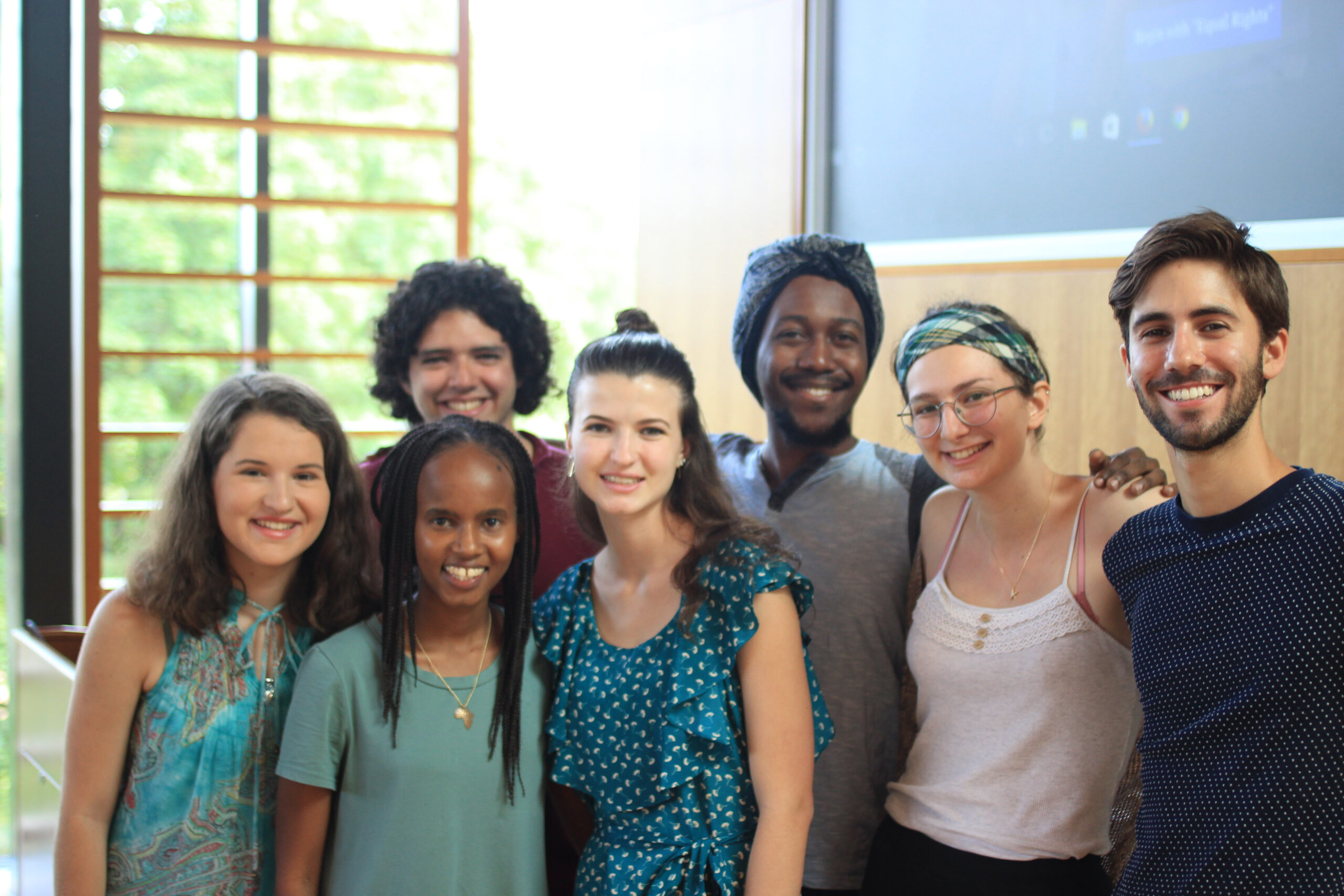Original research through new methodologies: A look at the Digital Humanities Summer Scholar program

Each DHSS cohort is typically made up of seven to eight students. Photo taken summer 2018. (Photo Courtesy of Lafayette Communications)
Lafayette students have experienced almost a year of virtual learning and digital assignments. One program at the college, however, has been immersed in the digital space for years.
The Digital Humanities Summer Scholar (DHSS) program is a six-week workshop that takes place at the beginning of the summer for a select cohort of students.
Students in this program become immersed in the world of digital humanities, which, according to DHSS director Angela Perkins, is the act of using computational methods and applying them to social and cultural problems that come up in humanities. Digital humanities is a subset of digital scholarship as a whole and can encompass many methodologies, she explained.
Scholars spend their time in the program doing original research and investigating a research question that can be based in many different fields of study and doesn’t necessarily have to draw from the student’s major.
“[DHSS] is very interdisciplinary, and that’s by design,” Perkins said.
She added that summer scholars come from many different academic backgrounds, including STEM fields such as engineering and computer science.
“What I really enjoy about the program is learning that a student who has a major in one of those [STEM] fields has a really rich humanities interest underlying that, but they don’t get to manifest it very often,” Perkins said.
In the first two weeks of the program, students work to grow their topic idea and narrow down their research question. The process is meant to be collaborative within the cohort, according to Perkins.
The third and fourth weeks of the program are an introduction to the world of digital humanities and methodologies that can enhance research. Some of these may include GIS mapping, text analysis and topic modeling.
Perkins added that she would like to introduce new units this summer such as virtual reality (VR) digital storytelling.
Workshops on these methodologies are led by Perkins and other Lafayette library employees as well as faculty from the college and other institutions.
In the final two weeks of the program, scholars finish their projects and present their work to the class and the public. For some past summer scholars, the presentation experience was the most rewarding part.
“Being able to present my own work felt like I accomplished something,” said Megan Deacon ’21, a 2020 summer scholar. “But also being able to…share with researchers who were very interested in the field of digital humanities, I felt like I was part of something.”
Saide Singh ’23, another 2020 summer scholar, said that it was “amazing” to see how all of the scholars’ ideas were connected and to understand the larger movement altogether.
Singh’s research looked at how Indo-Caribbean female authors from the late twentieth century to today have used poetry as a tool to talk about their experiences, identities and womanhood. Singh said she was passionate about the topic before she applied, as she has studied it in several classes.
Milena Berestko ‘22, a 2019 summer scholar, completed research on the Romani people in both her home country of Poland and more broadly in other countries. Her work sought to find the roots of discrimination that she saw growing up.
“I see so many connections now to how so many minority groups are treated currently. And it’s way easier for me to understand their treatment in the modern way when I have a strong background in the Roma community,” Berestko explained.
And for some summer scholars, research done during the six-week program has long-term effects on their future plans.
Deacon said that while she was doing research for her project on the connections between the concept of the “femme fatale” in Hollywood movies and women’s involvement in the U.S. criminal justice system, she remembered thinking, “This. I want to do this.”
She has since used her research in an application for a post-graduate research fellowship, and said she hopes to do more with it in the future.
The DHSS program, which began in 2015, was completely virtual in 2020 and will be again in 2021.
Perkins said that the decision to take the program virtual was “not a question” and that the format of the program was a good development.
“It was really great to have a connection to Lafayette over the summer, and to keep academically involved, even though we were so distant from everyone,” Deacon said.
Perkins said she hopes summer scholars would be offered on-campus housing if it is available. Additionally, the stipend for scholars has increased to $3,000 this year.
While Perkins said that the program is difficult, she emphasized the “goodness” that comes out of the work.
“It’s a pressure cooker, but it’s the most fun pressure cooker you’re ever going to go through,” Perkins said.
This year’s virtual DHSS program will take place from May 31 to July 9. Interested students should email Perkins at perkinsa@lafayette.edu to schedule a brief interview to discuss their research ideas and interests. The application deadline is Mar. 26.
About Katie Frost
Katie Frost ’22 is the arts and culture editor of The Lafayette. She studies English and history.